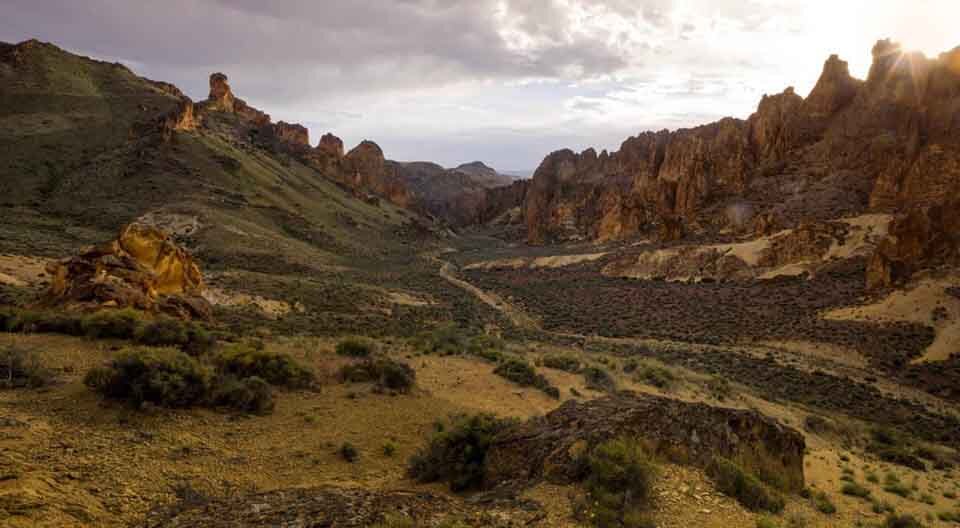Oregon Senators Try for the Third Time to Get ‘Oregon’s Grand Canyon’ Wilderness Designation. Will it Stick?

The Owyhee River is one of Oregon’s treasures. The name comes from three Hawaiian trappers that had been exploring the uncharted river and is derived from an earlier version of the name “Hawaii”.
Owyhee River is very popular with rafters, as not only is the scenery beautiful, but its rapids are considered particularly beautiful. It has millions of years of history behind it, and if you don’t believe that, you can see it for yourself in the canyonlands it carved out by itself. So large are the canyonlands (1,000 feet down in fact), that it’s considered “Oregon’s Grand Canyon”.
As you can imagine, the canyonlands are extremely significant in the health of the land, its economic factor, and its cultural significance to the Northern Paiute, Bannock and Shoshone tribes. Needless to say, it’s important. So you would imagine it’s federally protected, right? Well, no.
Given canyons tend to look a little sparse on the greenery side of things when you look at pictures, you might find a few people wondering why such a place needs to be protected. Canyons being protected surely isn’t unheard of, with Grand Canyon National Park being a great example. These 1.1 million acres of land (the size proposed by the senators trying to protect the canyon) are not only an excellent tourism spot in the local Malheur County, but it’s also home to a litany of animals such as elk, bighorn sheep, deer, and the endangered sage grouse, a magnificently unique bird found in the area. These animals, and the plant life around them, face massive risk from wildfire due to the invasive plants that ravage the area. The fish in the Owyhee River also have their fair share of difficulties due to cattle grazing and riparian areas that have been poorly preserved. Speaking of grazing, overgrazing is a serious problem as well. Cows eat 25-30 pounds of grass a day. Imagine what a herd of cows can do to the canyonlands in a week. Last but not least, there are tribes willing to protect these lands, such as the Burns Paiute Tribe, but can’t do so if they aren’t given the federal okay to do so.
So, let’s move onto what’s being done about this.
Oregon senators Ron Wyden and Jeff Merkley have been repeatedly proposing to congress for the last four years that the Oregon canyonlands be federally protected. This is their third time going at it, and they’re still aiming high with this new bill named Malheur Community Empowerment for the Owyhee Act.
If passed, this bill would do the following:
- Put 1.1 million acres of federal public lands in the Owyhee Canyonlands and 15 miles of the Owyhee River under the protection of the National Wilderness Preservation System and the Wild and Scenic Rivers System.
- Transfer 30,000 acres of federal and private land into a trust that would be overseen by the Burns Paiute Tribe in Southeast Oregon.
- Allow the canyonlands to be managed for conservation and cattle grazing by the National Park Service, Bureau of Land Management, U.S. Fish and Wildlife Service, and U.S. Forest Service.
When presenting this piece of legislation to the Subcommittee on Energy and Natural Resources, Public Lands, Forests, and Mining, Senator Wyden said, “We have a piece of legislation that preserves not just a treasured landscape for its beauty and ecological significance, but importantly, it preserves our agriculture culture and way of life for people who call it home.”
Despite the bill having failed twice already, Wyden and Merkley are feeling confident with their newest bill. Along with the bill, they submitted to the committee a letter of support co-signed by southeast Oregon tribal leaders, small business owners, ranchers, and conservationists, showing that many people of different walks of life want these lands to be protected.
Unlike in the bills before, this third version would make it so ranchers need not renew the Bureau of Land Management grazing permits they hold currently, nor would they have to go through an environmental review.
The bill isn’t perfect, but rarely do people get their dream bill. It’s still an absolute win for everyone in southeast Oregon. The bill still needs to be voted on, so let’s cross our fingers and hope that the third time is truly the charm. If everything goes according to plan, we can get to work on preserving one of nature’s finest monuments

Comments are closed.